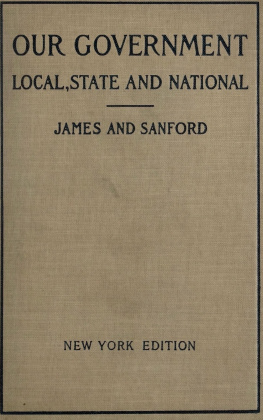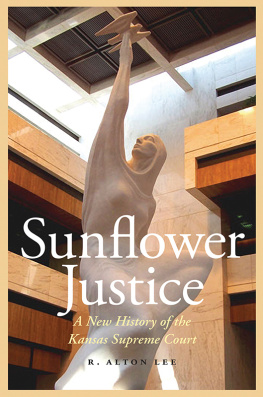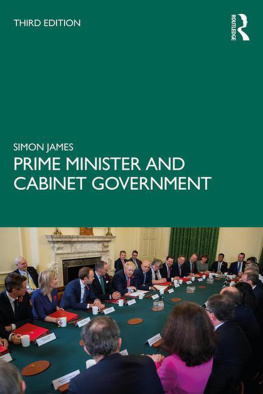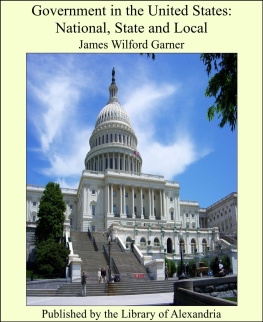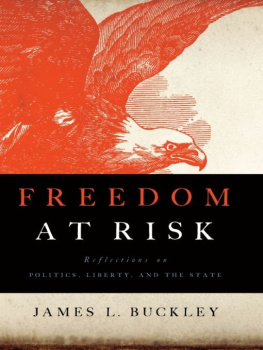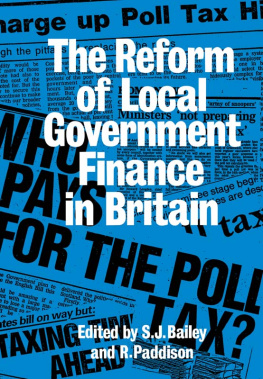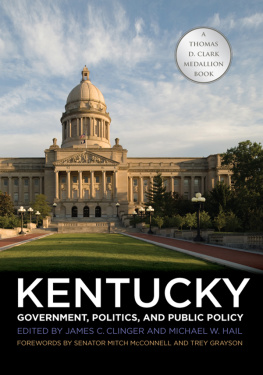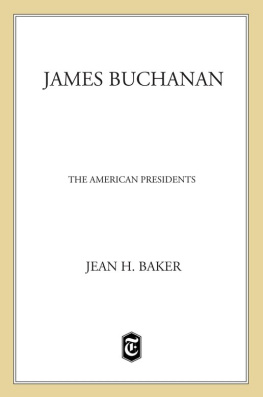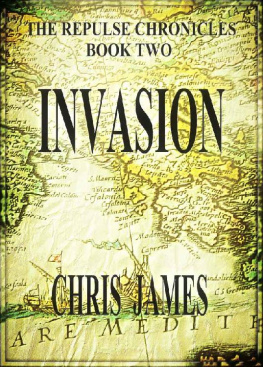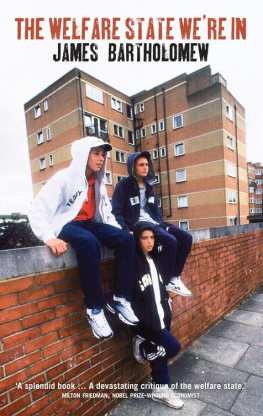PREFACE
The subject matter herewith presented partially represents the plan pursued by the authors as teachers of civil government for a number of years in high school, academy, and normal school. It has been found that a study of the methods by which the affairs of government are conducted gives constant interest to the work, and, consequently, the practical side of government has been emphasized. But while our desire has been to bring the actual working of the institutions under which the student lives into prominence, we have also attempted to give such accounts of the origin and early development of forms of government as will assist in explaining their process of growth. The plan of discussion is similar to that followed in "Government in State and Nation." The general favor with which that text has been received leads to the belief that it fully meets the requirement of the Committee of Five for such schools as present civil government in the third or fourth year of the course. In many cases, however, the subject is taught earlier in the course, and the present work has been prepared in answer to the requests of teachers for a text suitable to this class of students.
The arrangement is such that either Local (Part I), National (Part II), or State Government (Part III) may be studied first. In the work on local and State government it is not expected that the student will learn all of the different practices found in the various States, but that he will compare them with those of his own State.
While some of the discussions and many of the suggestive questions are intended to make students realize more completely their duties as citizens, many more having a local bearing will occur to teachers. It is scarcely to be hoped that all of the books and magazines mentioned will be found in any high school library, but the need for supplementary reading is being met through the rapid increase of public libraries. A working-library on the subject of civics may be accumulated in a short time if only a few of the books given in Appendix D are procured each year. No attempt has been made to give references to all of the material which has appeared within the past few years.
The ability of the reader and the time to be devoted to the subject have been kept constantly in mind. There may be more supplementary questions and references than can be used by any one class. Should it happen, on the other hand, that more work of this character is desired, the need may be met by reference to similar questions in "Government in State and Nation."
In preparing this new edition, we take the opportunity of acknowledging the assistance given by many teachers of civics, strangers to us, who are using "Government in State and Nation," and others who are using "Our Government," for their helpful suggestions.
EVANSTON, ILLINOIS, July 1, 1913.
CHAPTER I.
THE WORK OF LOCAL GOVERNMENT.
The Preservation of Order.The first and most important work of any government is the preservation of order. We think of this function most frequently as exercised in the arrest of offenders who violate the law. In fact, most young persons receive their earliest ideas of government by seeing the policeman, or constable, who stands for the authority of the government. But he is not the only officer who is concerned in preserving order. The police officer who makes an arrest cannot punish his prisoner, but must merely hold him until it is decided that he deserves punishment. This is the work of a court, with its justice, or judge, and the jury. If the prisoner is declared guilty, then the police officer executes the orders of the court by collecting a fine or by imprisoning him. We have here illustrated two divisions of governmental authority: (1) the judicial, which decides whether the law applies in particular cases; and (2) the executive, which carries out the requirements of the law and the orders of the court.
Law-Making.The executive and the judicial officers are both subject to higher authority: the one applies and the other executes the law. The framing of the law is the third function of government. This work is called legislation, and is carried on by such bodies as the town board, the village board, and the city council. But these law-making bodies do not have independent authority; they are bound more or less strictly by the opinions of those who elected them to office; i.e., the body of voters.
The Three Divisions of Government.We say, then, that in our country government is based finally upon the will of the people. For the expression of their will they choose numerous officers, who may be grouped under three heads, corresponding to the general divisions of government: legislative, executive, and judicial.
Just as it would be impossible for all the voters to take part in applying or interpreting the law, so it is in most cases impossible for them to assemble in a body and make the laws. They generally delegate this work to legislators; but in some States the voters of a town (or township) assemble yearly in town meeting, where all may take part in discussion and in voting.
Roads and Streets.The preservation of order is but one of the functions of government. In towns where the population is scattered, roads must be built, and it is still more necessary that in villages and cities, where many people live within a small area, streets should be graded and paved and sidewalks maintained. This is an illustration of the way in which, through the machinery of government, people provide themselves with many conveniences that it would be impossible for each citizen to provide for himself. The legislative bodies already mentioned determine the extent to which these things shall be done: the town board orders the laying out of a new road; the village board or the city council passes ordinances saying what streets shall be paved and what materials shall be used in the work.
Executive Officers, General and Special.The actual execution of the work involved in public improvements is generally in charge of a special officer, such as the road or street commissioner. But since there are many other matters of public concern that require attention, each under the control of an executive officer, it is necessary that a general officer should be in authority over all of these as the chief executive of the local government. This officer is known by various titles, as, in the town, the chairman, in the village, the president, and in the city, the mayor. In any case, he has all or most of the important executive work of government under his control. It is his duty to see that the laws are obeyed, so the police officers are subject to his orders. The chief executive is guardian of the people's interests; for he must see that the minor officers do not injure the public welfare by neglect of duty, and he must defend the public from all persons who would encroach upon its rights.
Let us now consider some of the other ordinary functions of local government.
The Poor.Poor relief may be mentioned first. How much aid shall be granted to paupers, and how shall it be distributed, are questions that everywhere require attention.

